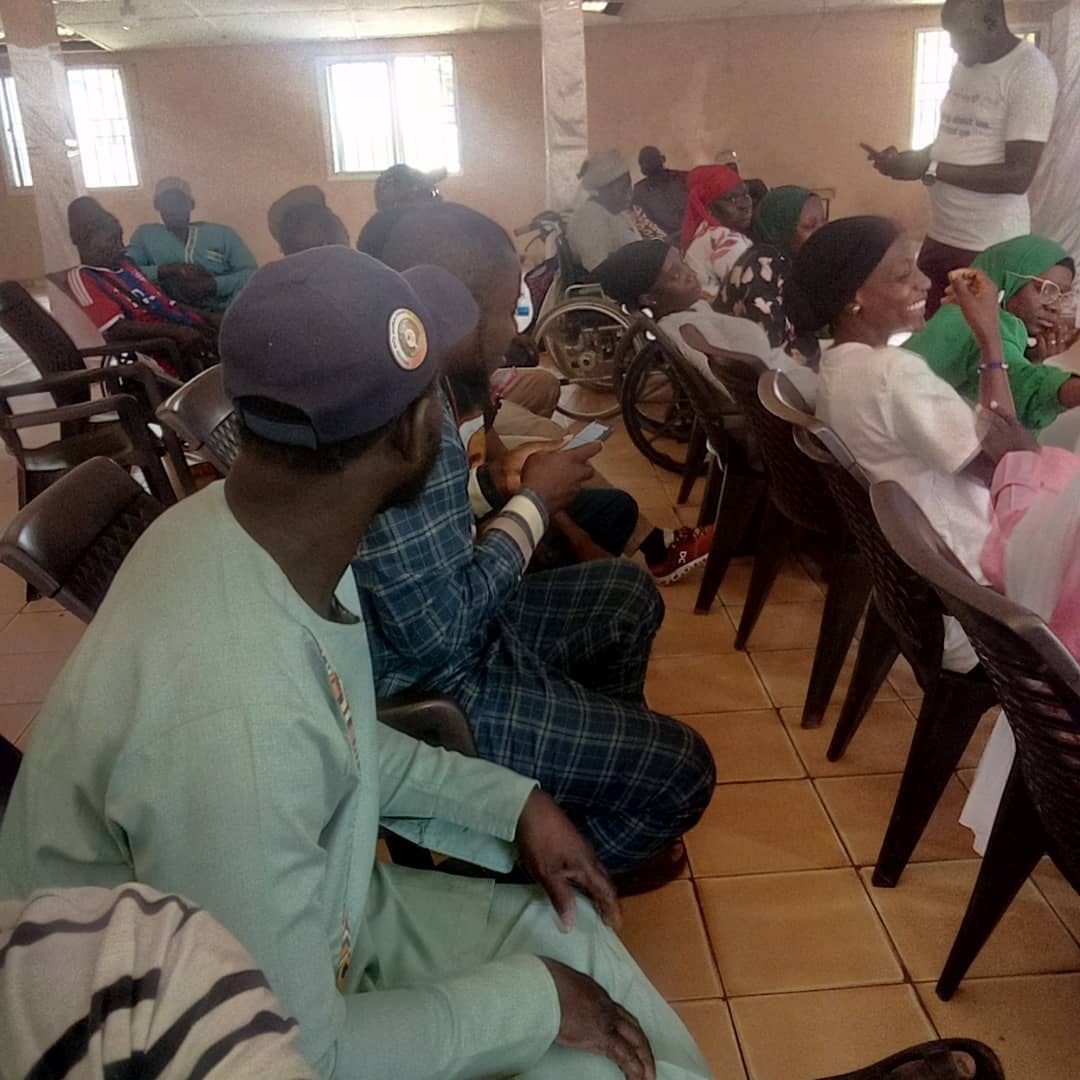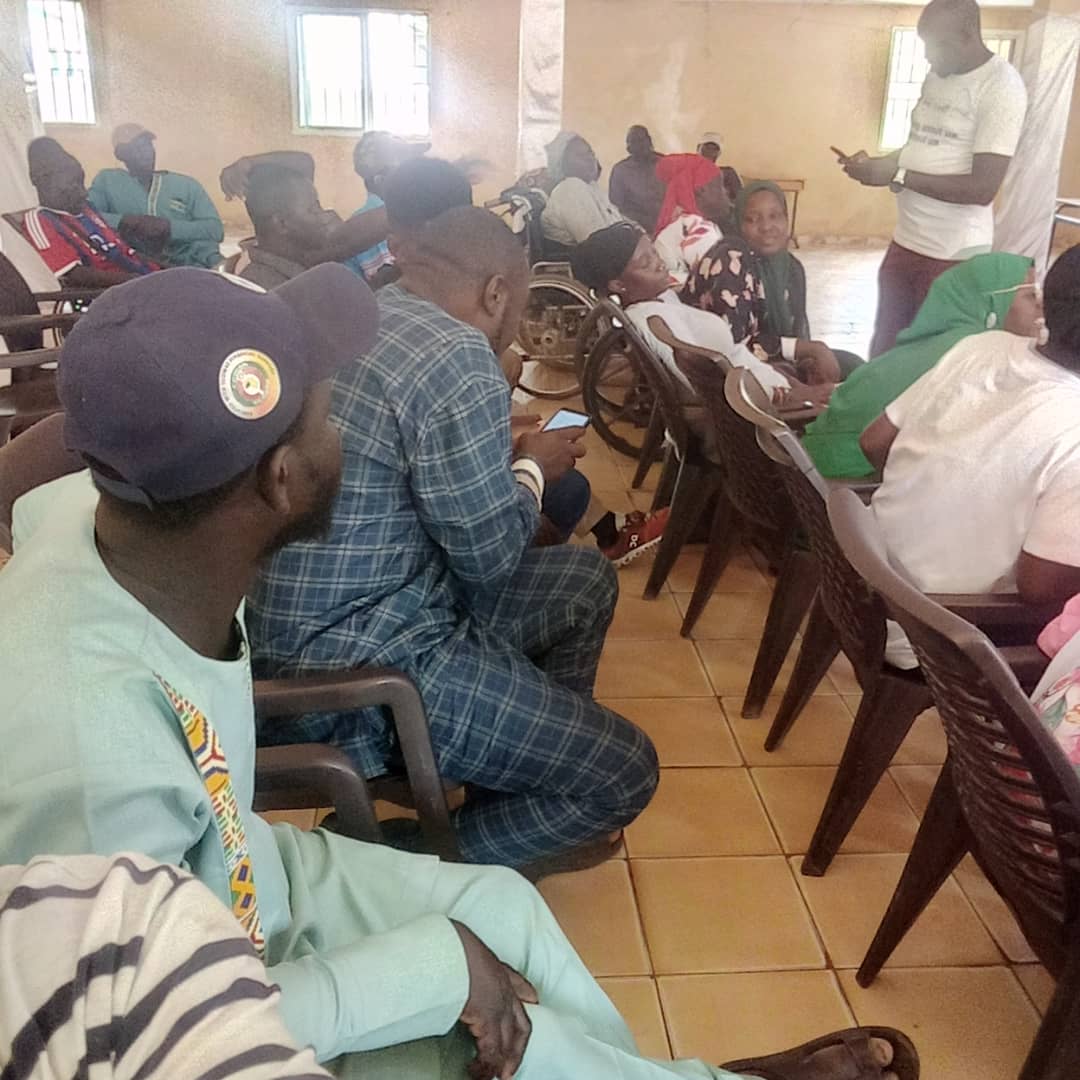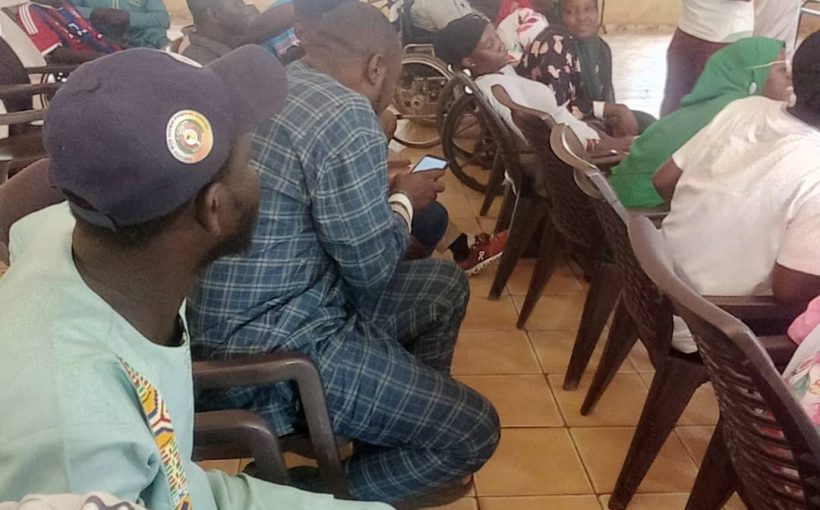“HPV is the leading cause of cervical cancer death among women. “Cervical cancers affect mainly women and prevent them from having children.HPV are caused by Cervical Cancer, the most common cancer worldwide.”
The World Health Organisation (WHO) in partnership with The Association of Non-Governmental Organisations (TANGO) and the Gambia Federation of the Disabled(GFD) recently conducted sensitization for the Gambia Federation for the Disables, highlighting the need for the public to take advantage of the free HPV and Covid 19 Vaccinations available in public and private health facilities, to save their lives.
Regarding COVID-19, presenters emphasised that while vaccination reduces the risk of contracting the virus.. Emphasis was also made on continuing to follow other preventive measures alongside vaccination.
The project organised extensive sensitisation campaigns to promote immunisation, stressing its crucial role in preventing childhood diseases, stated Independent Individual Consultants, serving as facilitators and resource persons during the recently held one day seminar for DPOs affiliated GFD, at the Gambia Organisation of Visually Impaired (GOVI) resource centre along MDI Road in Kanifing. They recommended that vaccines should be administered to infants within their first two years of life, regardless of disability.
Regarding HPV, the focus is on preventing cervical cancer, which is predominantly caused by specific HPV types. The vaccine, which is highly effective, targets girls in Grade 3 and their peers aged 9-14. The program aims to ensure all eligible girls receive two doses for lifelong protection against cervical cancer.
In addition to the immunisation efforts, there’s a strong advocacy for COVID-19 vaccination across all age groups. Vaccination is portrayed as essential for protecting individuals and communities from the virus, with assurances that vaccines are safe despite potential mild side effects.
“Immunisation is one of the safest and most effective public health interventions for preventing childhood diseases. It is essential that infants, both girls and boys, get all recommended vaccines at the right time. Children must be fully immunised in their first two years of life.
“All children, including those who are disabled need to be vaccinated. It is important for every child to complete the vaccination series to be fully immunised,” said Alhagie Tambajang lead consultant of the vaccination sensitization seminar.
Mr Alhagie Tambajang who is the lead facilitator stated that Immunisation started in The Gambia since colonial days, and in 1979 immunisation programme unit was established by the health ministry. He added they did training with youth and women groups as part of their awareness raising campaigns, towards addressing misconceptions about vaccinations.
“COVID-19 vaccines are safe and effective as they undergo all safety procedures for emergency use listed by WHO and approved by the Medicine Control Agency of The Gambia. COVID-19 vaccine helps to protect the lives of people,” he said; adding that those who have COVID Vaccines through contacts abroad should always verify their COVID-19 vaccination from the health workers in The Gambia.
“You can help stop the pandemic by getting COVID-19 vaccines. Like other vaccines, vaccine recipients might experience some side effects which are usually mild and resolve within one to two days and as a sign of effectiveness. Adverse Event Following Immunisation does not necessarily relate to vaccine property or immunisation error. All Adverse Events Following Immunisation (AEFI) should be reported to the nearest health facility,” he stated.
Mr Tambajang cautions that “being vaccinated will not prevent you from catching COVID-19,” adding: “therefore ensure other preventive measures are followed.”
Human Papillomavirus Infection (HPV):
Mr Tambajang further stated that “HPV vaccine prevents over 95% of HPV infections. HPV vaccine protects against cervical cancer and genital warts. HIV-infected individuals can be vaccinated. Cervical cancer is the second most common cancer among women worldwide. More than 80% of cervical cancer cases in The Gambia are detected in the late stages which is associated with a very low survival rate. Continuous screening prevents cervical cancer. With two doses of HPV vaccine, girls are protected against cervical cancer for life. Cervical cancer affects the cervix (The opening to the womb). The HPV vaccine is safe and effective.
“HPV is mostly acquired through sexual activities. Majority of HPV infections resolve spontaneously and do not cause symptoms or disease. However, persistent infection may lead to precancerous lesions, if untreated; these lesions may progress to cervical cancer. Vaccinating young girls against HPV is one of the most effective ways to prevent cervical cancer during adult life. HPV vaccination combined with regular screening can prevent cervical cancer. Cervical cancer is curable when diagnosed early. Cervical cancer can also affect young women of reproductive age. HPV Vaccine is free of charge and services available in all public and private health facilities. Ensure all girls in Grade 3 receive two doses of the vaccine to be fully protected for life. Ensure all girls aged 9-14 years old receive two doses of the vaccine to be fully protected for life. Vaccination services will be provided in schools, communities and public health facilities,” Mr Tambajang stated.
Mr Abdoulie Faye – a resource person and second presenter for his part said it is a collective responsibility of families and community members to ensure all children receive their required immunisations at the right time, reiterating that: “Some vaccines require multiple doses for full protection.”
Mr Faye emphasised that COVID-19 is real and can be transmitted from one person to another if proper preventive measures are not observed. He said No one is safe from COVID-19 until everyone is fully vaccinated, adding that all ages vaccines are effective and can save lives.
He stressed that Vaccination is key to protecting ourselves, our children and building safer communities and societies free from COVID-19 and other vaccine preventable diseases.
“It is everybody’s responsibility to inform and sensitise individuals, families and communities about the importance of COVID-19 vaccination. COVID-19 vaccines are safe; however, one may experience mild side effects after taking the vaccine such as fever, headache, etc,” he said.
He said 0-5 years old children should be vaccinated so that they can be prevented, and it is the right of the child to be vaccinated. “Some vaccines, such as COVID 19, should be taken in multiple doses. We need to take the vaccines to be protected, and prevent the spread. Side effects should not prevent people from taking vaccines,” he said.
Mr Faye also unveiled that HPV is the leading cause of cervical cancer death among women. “Cervical cancers affect mainly women and prevent them from having children. Cervical cancer can lead to excessive bleeding, genital infections, odorous discharge and renal/kidney failure. HPV is caused by Cervical Cancer, the most common cancer worldwide. After vaccination we should go for screening after 6 Months. HPV Vaccines are safe and protective,” Mr Faye stated.
“The Health Benefit of COVID-19 vaccination outweighs its risk. COVID-19 vaccines targets everyone aged 18 years and above irrespective of gender, status, disability conditions etc.
People with special needs should be supported to access COVID-19 vaccination sites. Household heads should ensure that members of their families are vaccinated.
From the day the child is born up to the age of five years the child should be taken to the clinic,” presenters asserted.

